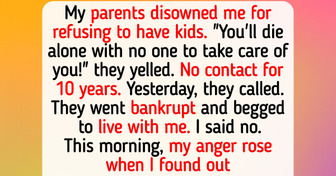That is actually very informative.
8 Annoying Child Habits That Are Actually Normal
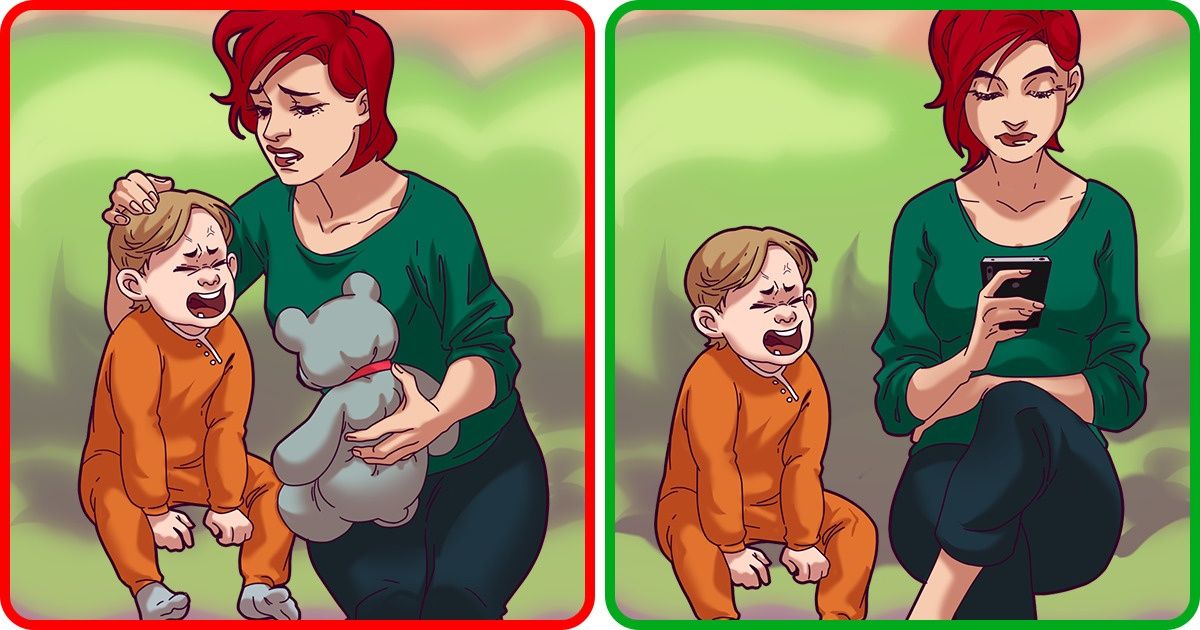
Each parent can recall the moment when their angel turned into a 2-year-old toddler with an awful attitude and started doing annoying things. In these cases, parents are often told to see a psychologist. But are these habits really so bad that they require an expert’s help?
Bright Side has decided to research some unpleasant child behavior issues and we have news for you. You can calm down, your baby’s fine.
8. Always answers “no”
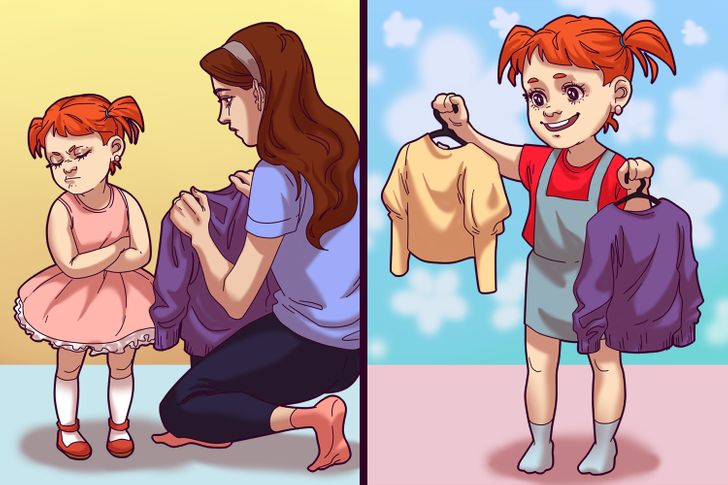
A nice and quiet child suddenly starts refusing everything their parents offer them. They argue even when it comes to things they like.
What happens:
As a rule, the “no” period indicates that a child has started to realize that they can assert themselves. It usually occurs when a child is 2.5 to 3 years old. They finally understand that they’re individuals and not part of their parents, and try to carve out their place in the family.
What to do:
Be patient and don’t try to suppress your child’s rebellious spirit. Let them make decisions and let them be more independent: it’s fine if your child decides what to wear to go to kindergarten. This way, your child will trust you more and become more confident.
7. Asks the same question over and over
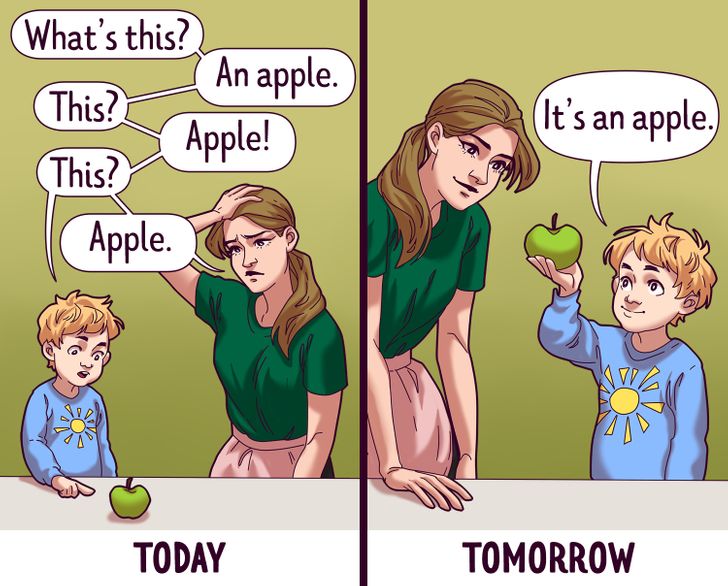
Your baby isn’t just repeating the same word over and over, they’re demanding your reaction. Does this ring a bell with you? Sometimes moms can’t understand what their children want and kids get upset if they don’t receive an answer. This behavior can drive even the calmest parents crazy.
What happens:
Repetition is the best way to remember how and when this or that word is used and how its meaning changes depending on the situation and the time. Additionally, a child exercises with their intonation and sounds.
What to do:
Keep in mind that repetition is a step to mastering speaking. Encourage your child, talk to them more: the “repetition period” will end, but your negative reaction may cause problems in the future.
6. Often wakes up at night
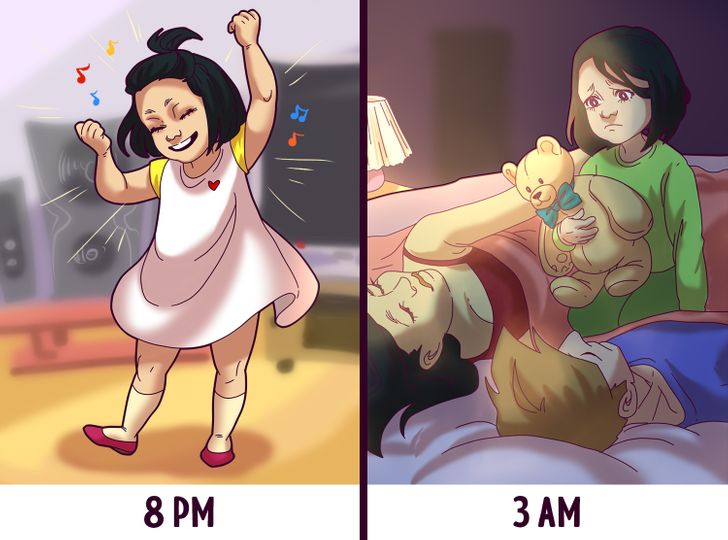
Your baby goes to bed and usually wakes up at the same time every morning, but suddenly they start waking up at 3 AM and even crying. The more often it happens, the more difficult it is to put up with this habit.
What happens:
Sleep disorders usually occur because of emotions and new information received during the day. If a child doesn’t want to sleep, they’ve probably experienced intense emotions in the evening. And sometimes mastering new skills may also cause overexcited behavior: child psychologists think that kids want to try their new skills so much that they’re ready to sacrifice their sleep.
What to do:
First, try planning all your activities for the first part of the day. If your child still doesn’t want to sleep at night, don’t get crazy. Spend some time with your child, they’ll probably calm down in a few minutes and go back to bed.
5. Doesn’t want to listen to you
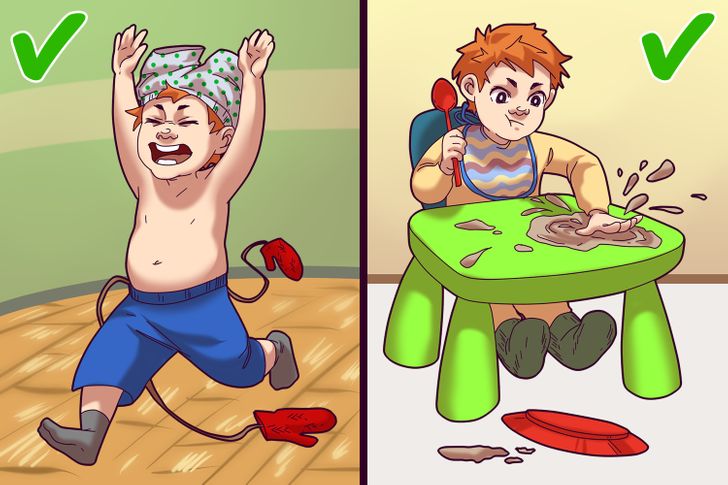
In the morning, you have to drop your child at their kindergarten class and go to work. But they have different plans: they throw their breakfast, run, scream, and don’t want to brush their teeth. Not the best time for drama, right?
What happens:
According to psychologist John Gottman, children’s naughtiness is their invitation to play. For babies, playing is the main way for them to discover the world. Your child wakes up full of energy and you shouldn’t blame them if your plans differ.
What to do:
Reconsider your schedule. You might want to try to wake up earlier to have time to play with your child. If this option doesn’t suit you, try to understand them and let them play at least for 15-20 minutes.
4. Cries for no reason
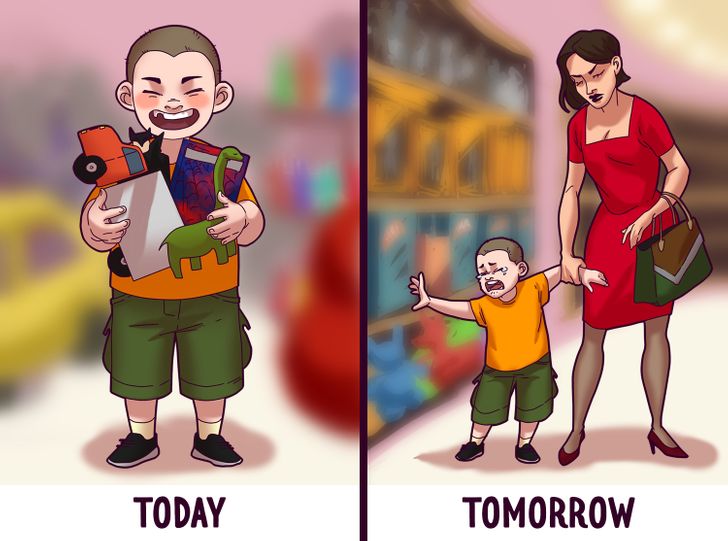
Today, you didn’t allow your child to watch cartoons and they started screaming and crying so you punished them for bad behavior. But you didn’t consider the fact that yesterday, you let them watch cartoons for 3 hours so that they didn’t disturb you when you were busy.
What happens:
Children always remember the rules of games (especially if they’re interested in these games) and they really don’t understand why the situation changes. Thus, your inability to satisfy their need makes them feel frustrated.
What to do:
Be logical when it comes to restrictions. Don’t change the rules just because you’re stronger and you can do it. Set universal rules and follow them together with your child.
3. Throws things

Your child always throws pencils, toys, and other objects. If you have a baby, they throw their pacifier on the floor and cry until you give it back to them.
What happens:
First, babies are prone to impulsive behavior and they can’t control it because their brain hasn’t completely developed yet. Second, throwing things is also a good skill that children have to practice: they develop their fine motor skills and coordination between their hands and eyes. Third, when a child is throwing something, they learn the cause-and-effect relationship (if you throw it, it falls down).
What to do:
Try to explain what things may be thrown and what shouldn’t be thrown. As a rule, a 2-year-old toddler can already understand this.
2. Doesn’t want to eat
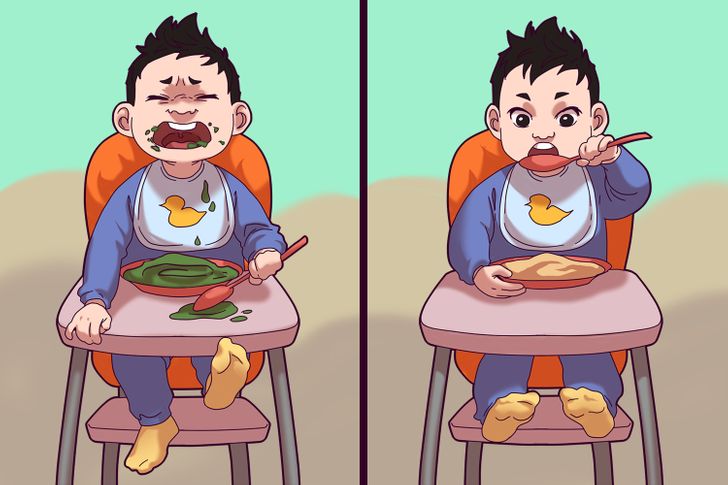
Your child has always had a good appetite, but now they refuse to eat even their favorite dishes. Servings are also too big now and your child always leaves some food on their plate.
What happens:
Pediatricians can identify several reasons for this loss of appetite, like fatigue, growing teeth, or just a desire to play. But studies show that new products may also affect your child’s eating patterns. Babies are rather conservative and new things scare them, so you may worsen the situation if you keep insisting that they eat.
What to do:
Don’t make your child eat if they don’t want to. New products gradually allow them to build a positive relationship with food.
1. Constant temper tantrums
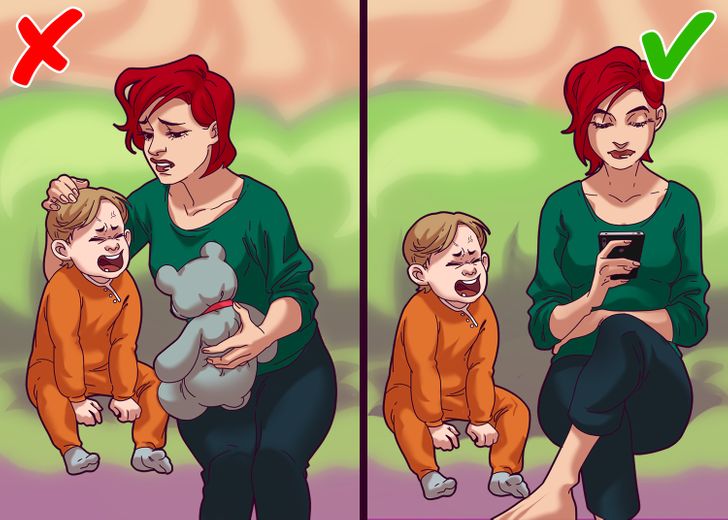
Sudden temper tantrums are a parent’s worst nightmare. Initially, the child cries to get what they want, but then they just lose control. Things get even worse if it happens in a public place. It can sometimes be almost impossible to calm them down.
What happens:
Tantrums usually have deep and hard-to-figure-out reasons for happening. It could be fatigue, emotional overload, hunger, and so on. In this case, a situation where you refuse to buy a new toy can turn into a tragedy. Adults can cope with their emotions, but the nervous system of children isn’t well-developed yet.
What to do:
Talking and trying to attract their attention is useless. You can try to avoid tantrums in the beginning (like by offering something more interesting for them to do) or you can let your child cry and calm down on their own. Experts don’t recommend making concessions in these situations.
Bonus: How to cope with a child’s excessive emotions
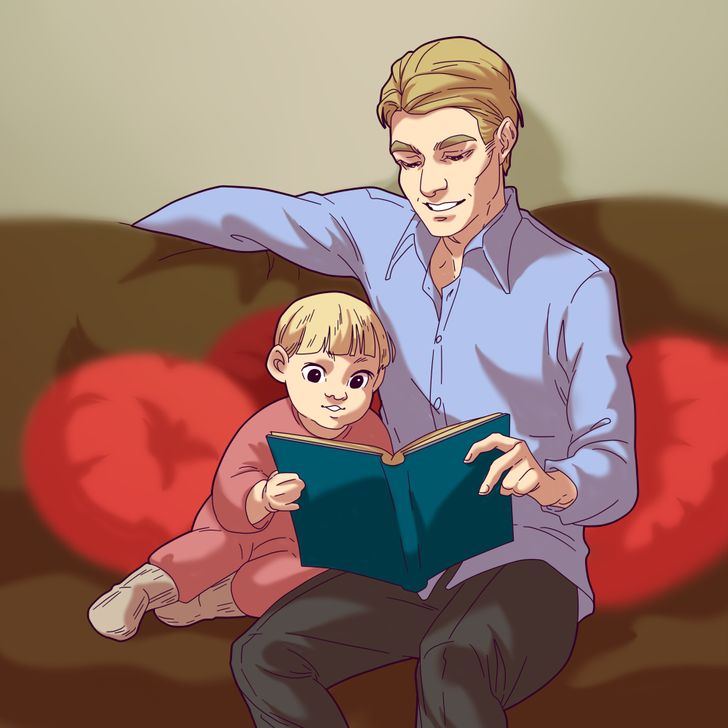
A group of American scientists has conducted a study and revealed that reading aloud has an impact on children’s emotional state. This study has proven that children, whose parents read aloud to them, become less aggressive. Scientists explain that the process that starts when children listen to stories is tightly connected with their ability to control emotions and behavior.
Bright Side thinks that we have to read aloud to our babies regardless of their character and habits.
How did you manage to overcome this crisis period? How did your child cope with it?
Comments
Related Reads
10 Parenting Mistakes We Should Avoid

A Woman Who Won the “Ugliest Woman” Contest to Earn Money for Her Children

20+ Newlyweds Who’ve Proven Perfect Weddings Only Happen in the Movies

13 Mothers-in-Law Whose Kindness and Compassion Broke Every Stereotype
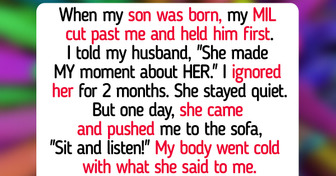
I Refused to Turn Our Romantic Trip Into a Family Vacation and Faced the Consequence

My Stepmother Inherited Everything and Kicked Us Out—But She Didn’t Count on One Thing
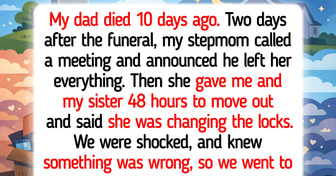
10 Times a Painful Truth Turned Into Kindness That Saved a Soul
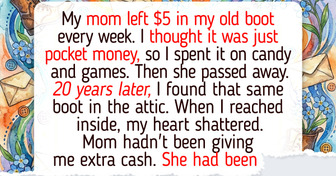
I Refused to Follow My Boss’s Dress Code—HR Had to Step In

I Refuse to Give My Retirement Savings to My Adult Son—I’m Not Responsible for His Failures
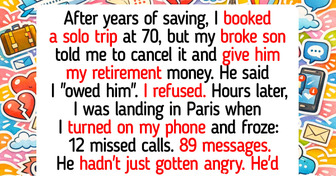
My Cousin Uninvited Me to Save Money—My Petty Revenge Was Absolutely Worth It

12 Life Moments Where Quiet Kindness Played the Main Role

My Parents Mocked Me for Being Childfree—Now They’re Living the Irony
